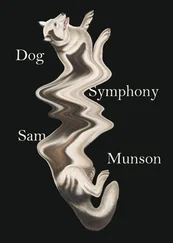G. - And you are still capable of laughing at the most revered scientist of the epoch?
R. - Ridicule, me? ... This is the highest admiration! In order that Marx should be able to deceive so many people of science, it was essential that he should tower above them all. Well: in order to have judgements about Marx in all his greatness, we must consider the real Marx, Marx the revolutionary, Marx, judged by his manifesto. This means Marx the conspirator, as during his life the revolution was in a condition of conspiracy. It is not for nothing that the revolution is indebted for its development and its recent victories to these conspirators.
G. - Therefore you deny the existence of the dialectical process of contradictions in Capitalism, which lead to the final triumph of Communism?
R. - You can be sure that if Marx believed that Communism will achieve victory only thanks to the contradictions in Capitalism, then he would not have once, never, mentioned the contradictions on the thousands of pages of his scientific revolutionary work. Such was the categorical imperative of the realistic nature of Marx: not the scientific, but the revolutionary one. The revolutionary and conspirator will never disclose to his opponent the secret of his triumph ... He would never give the information; he would give him disinformation which you use in counter-conspiracy. Is that not so?
G. - However, in the end we have reached the conclusion (according to you) that there are no contradictions in Capitalism, and if Marx speaks of them then it is only a revolutionary-strategical method. That is so? But the colossal and ever-growing contradictions in Capitalism are there to see. And so we get the conclusion that Marx, having lied, spoke the truth.
R. - You are dangerous as a dialectician, when you destroy the brakes of scholastic dogmatism and give free rein to your own inventiveness. So it is, that Marx spoke the truth when he lied. He lied when he led into error, having defined the contradictions as being "continuous" in the history of the economics of capital and called them "natural and
{p. 17} inevitable," but at the same time he stated the truth because he knew that the contradictions would be created and would grow in an increasing progression until they reach their apogee.
G. - This means that with you there is an antithesis?
R. - There is no antithesis here. Marx deceives for tactical reasons about the origin of the contradictions in Capitalism, but not about their obvious reality. Marx knew how they were created, how they became more acute and how things went towards general anarchy in Capitalistic production, which came before the triumph of the Communist revolution ... He knew it would happen because he knew those who created the contradictions.
G. - It is a very strange revelation and piece of news, this assertion and exposal of the circumstance that that which leads Capitalism to its "suicide," by the well-chosen expression of the bourgeois economist Schmalenbach, in support of Marx, is not the essence and inborn law of Capitalism. But I am interested to know if we will reach the personal by this path?
R. - Have you not felt this intuitively? Have you not noticed how in Marx words contradict deeds? He declares the necessity and inevitability of Capitalist contradictions, proving the existence of surplus value and accumulation, i.e. he proves that which really exists. He nimbly invents the proposition that to a greater concentration of the means of production corresponds a greater mass of the proletariat, a greater force for the building of Communism, is that not so? Now go on: at the same time as this assertion he founds the International. Yet the International is, in the work of the daily struggle of the classes, a "reformist," i.e. an organization whose purpose is the limitation of the surplus value and, where possible, its elimination. For this reason, objectively, the International is a counter-revolutionary organization and anti-Communist, in accordance with Marx's theory.
G. - Now we get that Marx is a counter-revolutionary and an anti-Communist.
R. - Well, now you see how one can make use of the original Marxist culture. It is only possible to describe the International as being counter-revolutionary and anti-Communist, with logical and scientific exactness, if one does not see in the facts anything more than the directly visible result, and in the texts only the letter. One comes to such absurd conclusions, while they seem to be obvious, when one forgets that words and facts in Marxism are subject to strict rules of the higher science: the rules of conspiracy and revolution.
G. - Will we ever reach the final conclusions?
R. - In a moment. If the class struggle, in the economic sphere, turns out to be reformist in the light of its first results, and for that reason contradicts the theoretical presuppositions, which determine the establishment of Communism, then it is, in its real and true meaning, purely revolutionary. But I repeat again: it is subject to the rules of conspiracy, that means to masking and the hiding of its true aims ... The limitation of the surplus value and thus also of accumulations as the consequence of the class struggle - that is only a matter of appearances, an illusion, in order to stimulate the basic revolutionary movement in the masses. A strike is already an attempt at revolutionary mobiliz-
{p. 18} ation. Independently of whether it wins or not, its economic effect is anarchical. As a result this method for the improvement of the economic position of one class brings about the impoverishment of the economy in general; whatever may be the scale and results of the strike, it will always bring about a reduction of production. The general result: more poverty, which the working class cannot shake off. That is already something. But that is not the only result and not the most important one. As we know, the only aim of any struggle in the economic sphere is to earn more and work less. Such is the economic absurdity, but according to our terminology, such is the contradiction, which has not been noticed by the masses, which are blinded at any given moment by a rise in wages, which is at once annulled by a rise in prices. And if prices are limited by governmental action, then the same thing happens, i.e. a contradiction between the wish to spend more, produce less, is qualified here by monetary inflation. And so one gets a vicious circle: a strike, hunger, inflation, hunger.
G. - With the exception when the strike takes place at the expense of the surplus value of Capitalism.
R. - Theory, pure theory. Speaking between ourselves, take any annual handbook concerning the economics of any country and divide rents and the total income by all those receiving wages or salaries, and you will see what an extraordinary result emerges. This result is the most counter-revolutionary fact, and we must keep it a complete secret. This is because if you deduct from the theoretical dividend the salaries and expenses of the directors, which would be the consequence on the abolition of ownership, then almost always there remains a dividend which is a debit for the proletariat. In reality always a debit, if we also consider the reduction in the volume and quality of production. As you will now see, a call to strike, as a means for achieving a quick improvement of the well-being of the proletariat is only an excuse; an excuse required in order to force it to commit sabotage of Capitalistic production. Thus to the contradictions in the bourgeois system are added contradictions within the proletariat; this is the double weapon of the revolution, and it - which is obvious - does not arise of itself: there exists an organization, chiefs, discipline, and above that there exists stupidity. Don't you suspect that the much-mentioned contradictions of Capitalism, and in particular the financial ones, are also organized by someone? ... By way of basis for these deductions I shall remind you that in its economic struggle the proletarian International coincides with the financial International, since both produce inflation, and wherever there is coincidence there, one should assume, is also agreement. Those are his own words.
Читать дальше












